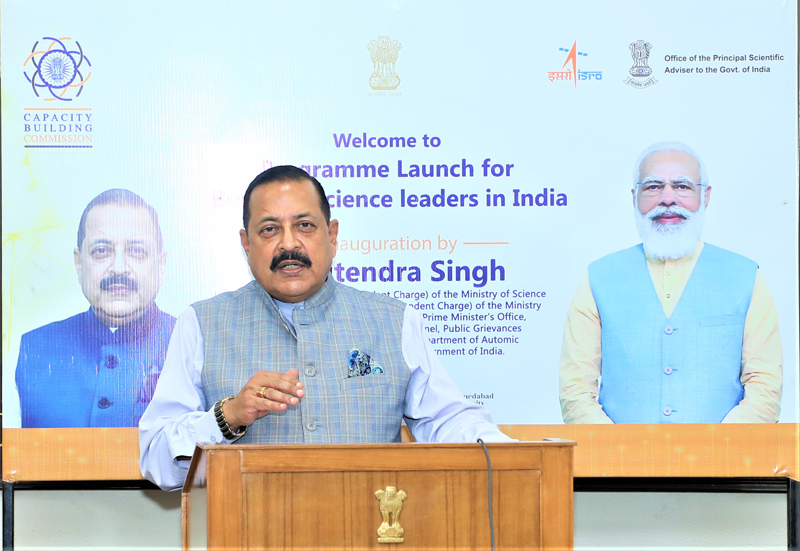
Excelsior Correspondent
NEW DELHI, Sept 29 : Union Minister of State (Independent Charge) Science & Technology; Minister of State (Independent Charge) Earth Sciences; MoS PMO, Personnel, Public Grievances, Pensions, Atomic Energy and Space, Dr Jitendra Singh today said, “Science Leaders” are needed to drive the integration of science and technological development within society in a way that places science in position to address the needs of the citizen and the sector.
Addressing after the launch of “Building Science Leaders Program ” , Dr Jitendra Singh said, for government service delivery, it is important for scientists to be at the forefront of their work and hone competencies to deliver science for the public good.
Dr Jitendra Singh said, science & technology sector in India further has an emphasis on deriving social good, one good example of this is use of remote sensing technology for life saving cyclone predictions in coastal areas. Similarly, technology such as United Payment Interface built on India Stack is revolutionising payment for everyone. UPI is the world?s only API-driven interoperable real-time money transfer platform designed for a mobile-only world; the Minister added.
Dr Jitendra Singh lauded the role of the Capacity Building Commission, Office of Principal Scientific Adviser (PSA) to the Government of India, Indian Space Research Organization (ISRO) for engaging with the Centre for Technology, Innovation and Economic Research (CTIER) and Ahmedabad University to develop and deliver the ‘Building Science Leaders in India’ programme.
The Minister said, the ‘Building Science Leaders in India’ is a uniquely designed collaborative executive development programme for scientists who are leading labs or are likely to assume leadership roles and future directors of research organizations. He said, the program will hone the key competencies such as communication, design thinking and project management in scientists.
The first batch of the program has participation from 7 scientific departments under the government of India – DST, DBT, ISRO, DAE, CSIR, MoES and MoEFCC. The cohort approach is also aimed at ensuring scientists across the departments work with each other.
The program was designed in two phases- Phase 1 (online): Two days online program held on 7th and 8th September, while Phase 2 (in-person): Four days of the programme in-person program at ISRO Bangalore between 27th and 30th September.

